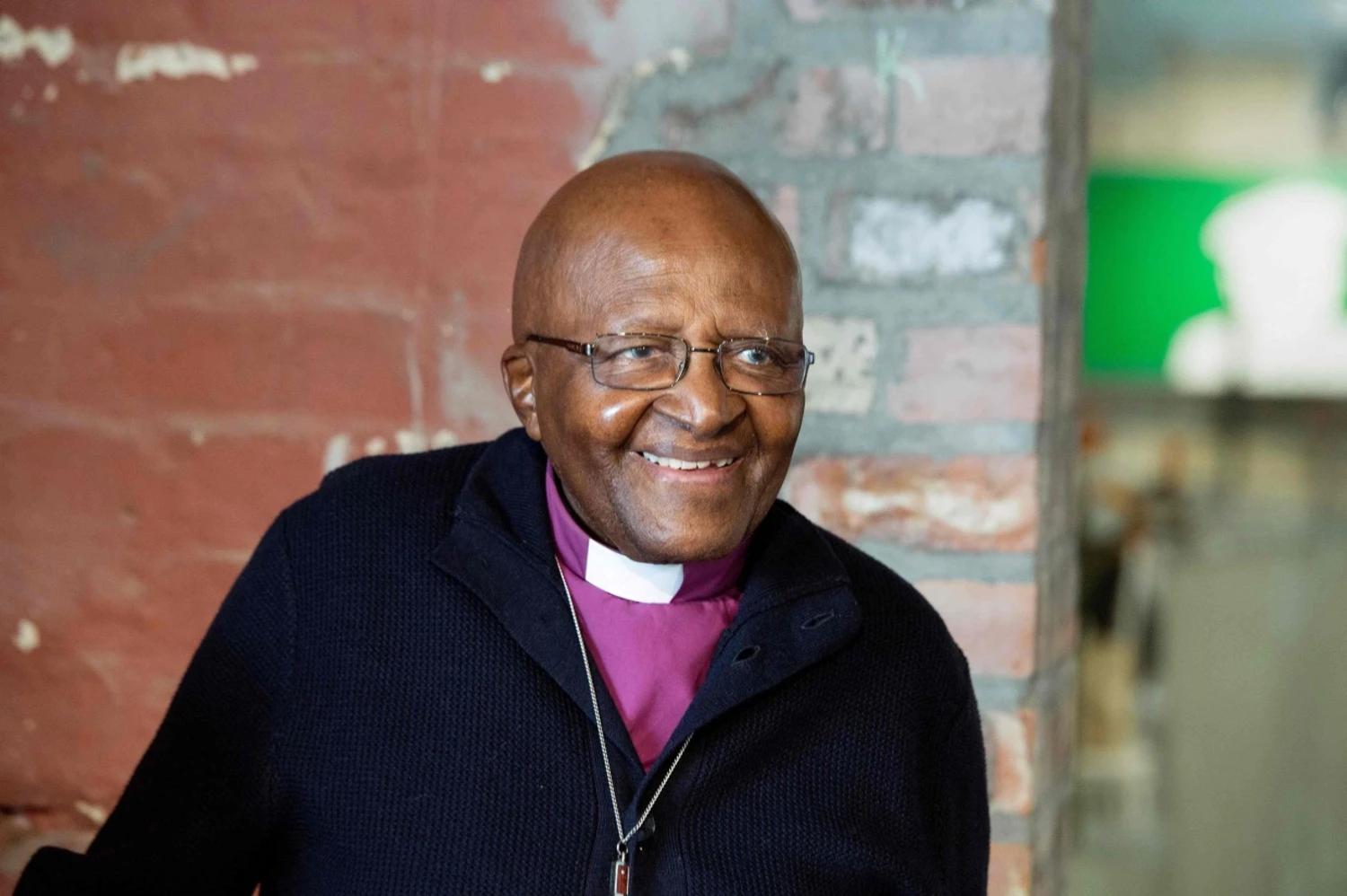 Archbishop Desmond Tutu, the cleric and social activist who was a giant of the struggle against apartheid in South Africa, has died aged 90.
Archbishop Desmond Tutu, the cleric and social activist who was a giant of the struggle against apartheid in South Africa, has died aged 90.
Tutu, described by foreign observers and his countrymen as the moral conscience of his nation, died in Cape Town on Boxing Day.
South African President, Cyril Ramaphosa announced;
The passing of archbishop emeritus Desmond Tutu is another chapter of bereavement in our nation’s farewell to a generation of outstanding South Africans who have bequeathed us a liberated South Africa.
From the pavements of resistance in South Africa to the pulpits of the world’s great cathedrals and places of worship, and the prestigious setting of the Nobel peace prize ceremony, the Arch distinguished himself as a non-sectarian, inclusive champion of universal human rights.
“Ultimately, at the age of 90, he died peacefully at the Oasis Frail Care Centre in Cape Town this morning,” Dr Ramphela Mamphele, acting chairperson of Archbishop Desmond Tutu IP Trust and coordinator of the Office of the Archbishop, said in a statement on behalf of the Tutu family.
However, she did not give details on the cause of death.
Desmond Tutu won the Nobel Peace Prize in 1984 for combatting white minority rule in his country.
The first black Archbishop of Cape Town and bishop of the Church of the Province of Southern Africa (now the Anglican Church of Southern Africa), Tutu received many international accolades during his long and illustrious life, including the Nobel Peace Prize in 1984; the Albert Schweitzer Prize for Humanitarianism in 1986; the Pacem in Terris Award in 1987; the Sydney Peace Prize in 1999; the Gandhi Peace Prize in 2007; and the Presidential Medal of Freedom in 2009.
Initially trained as a teacher after leaving school, he began studying theology after having taught at a high school for three years and was ordained as a priest in 1960. He continued his studies in England, culminating in a Master of Theology degree in 1966.
In 1975, he was appointed Dean of St Mary’s Cathedral in Johannesburg, the first black person to hold that position. From 1976 to 1978 he was Bishop of Lesotho, and in 1978 became the first black general secretary of the South African Council of Churches.
After the fall of apartheid, Tutu headed the Truth and Reconciliation Commission. He retired as Archbishop of Cape Town in 1996 after serving in that capacity for 10 years, and was made emeritus Archbishop of Cape Town, an honorary title that is unusual in the Anglican church.
In 1997, Tutu was diagnosed with prostate cancer and underwent successful treatment in the US. He was readmitted to hospital at various times thereafter to address the cause of recurring infections. Nevertheless, he has remained in good spirits.
Tutu is survived by his wife, Leah. They met while at college, and shared four children.
